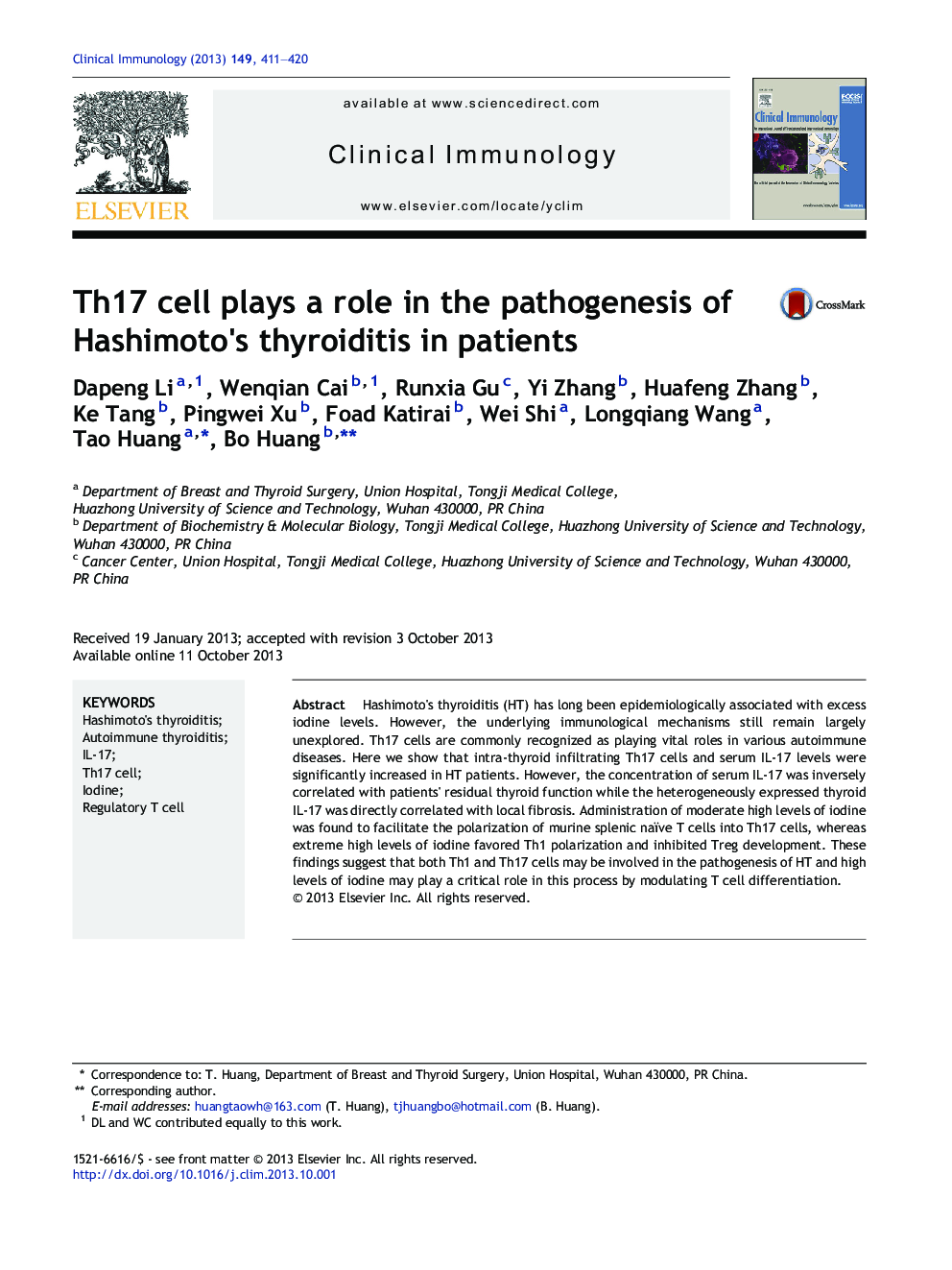| کد مقاله | کد نشریه | سال انتشار | مقاله انگلیسی | نسخه تمام متن |
|---|---|---|---|---|
| 6087604 | 1207374 | 2013 | 10 صفحه PDF | دانلود رایگان |

- Th17 cells contribute to the pathogenesis of HT.
- Serum IL-17 is elevated and negatively correlated with hypothyroidism in patients.
- Local expression of IL-17 is correlated with thyroid fibrosis.
- High dose iodine favors Th17 or Th1 development but inhibits Treg development.
Hashimoto's thyroiditis (HT) has long been epidemiologically associated with excess iodine levels. However, the underlying immunological mechanisms still remain largely unexplored. Th17 cells are commonly recognized as playing vital roles in various autoimmune diseases. Here we show that intra-thyroid infiltrating Th17 cells and serum IL-17 levels were significantly increased in HT patients. However, the concentration of serum IL-17 was inversely correlated with patients' residual thyroid function while the heterogeneously expressed thyroid IL-17 was directly correlated with local fibrosis. Administration of moderate high levels of iodine was found to facilitate the polarization of murine splenic naïve T cells into Th17 cells, whereas extreme high levels of iodine favored Th1 polarization and inhibited Treg development. These findings suggest that both Th1 and Th17 cells may be involved in the pathogenesis of HT and high levels of iodine may play a critical role in this process by modulating T cell differentiation.
Journal: Clinical Immunology - Volume 149, Issue 3, Part B, December 2013, Pages 411-420